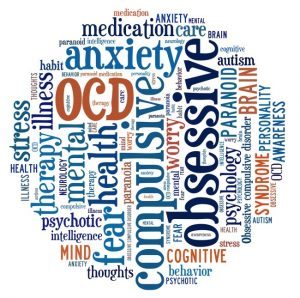My doctor says that it’s not hallucinations. It’s my brain playing tricks on me. I feel that I need a halal romantic relationship. Why is my feeling so strong? Will I ever be normal again? In the past, I used to panic that I had a dreadful disease very often. I felt like I was not a Muslim. I am now in contact with one of the best doctors, currently taking vendep, cipralex, aripip, zexa, rivotril.
Answer
In this counseling answer:
“From a psychological perspective, many therapists tackle issues with OCD by encouraging their clients to confront any fears they have as a means to challenge the beliefs that they have.”
Wa Alaikum salaam wa Rahmatullah wa barakatuh sister,
It really does sound like this diagnosis of OCD is quote severely affecting your life to the point that it is affecting your studies and your Deen. Alhamdulillah, you have sought medical assistance and are taking some medication to control some of your symptoms and you are seeking assistance to find other ways to manage ongoing symptoms also.
Seek refuge from Shaytaan
It is often said that the symptoms of OCD are a result of Shaytaans whispers. The very fact that these symptoms are causing you to have troublesome thoughts about being a Muslim is evidence that perhaps this could be the case here. Therefore, much of the advice from an Islamic perspective in managing you OCD focus on finding ways to protect yourself from Shaytaan.
Remember Allah often
One of the best ways to keep Shaytaan away is to always keep Allah in mind. Firstly, and most importantly, this will come from completing your obligatory duties such as praying 5 times a day. However, it is also important to incorporate remembrance into other aspects of your daily routine so that Allah is always on your mind. Remember Allah with all that you do, fill your free moments with other acts of worship, such as dhikr, or reading Quran.
Confront your fears and challenge your beliefs
From a psychological perspective, many therapists tackle issues with OCD by encouraging their clients to confront any fears they have as a means to challenge the beliefs that they have.
Check out this counseling video:
So, for example, in your case, allowing yourself to be around children rather than avoiding contact with them will allow you to face your anxieties around the thoughts of feces and with this contact, you will see that in fact there are no feces there at all. This will help you to develop a tolerance around such anxious thoughts and that even if you take no protective measures against the feces that you see, you will be ok and you won’t get sick and helps to challenge the false reality that you currently live in. After all, what’s the worst that could happen even if these children were covered in feces? If you are able, it is recommended that you get the assistance of a therapist who will be able to work with you using techniques such as these.
Remain persistent
Alhamdulillah, you report that things are getting better for you which is great but you must not use this as an excuse to become complacent. Remain persistent with your medication and managing your symptoms from both an Islamic and psychological perspective to avoid experiencing a relapse. It is hard work but is all part of the prolonged recovery process.
May Allah protect you from these ongoing intrusive thoughts that you have and grant you a full recovery from your symptoms.
Salaam,
***
Disclaimer: The conceptualization and recommendations stated in this response are very general and purely based on the limited information provided in the question. In no event shall AboutIslam, its counselors or employees be held liable for any damages that may arise from your decision in the use of our services.


